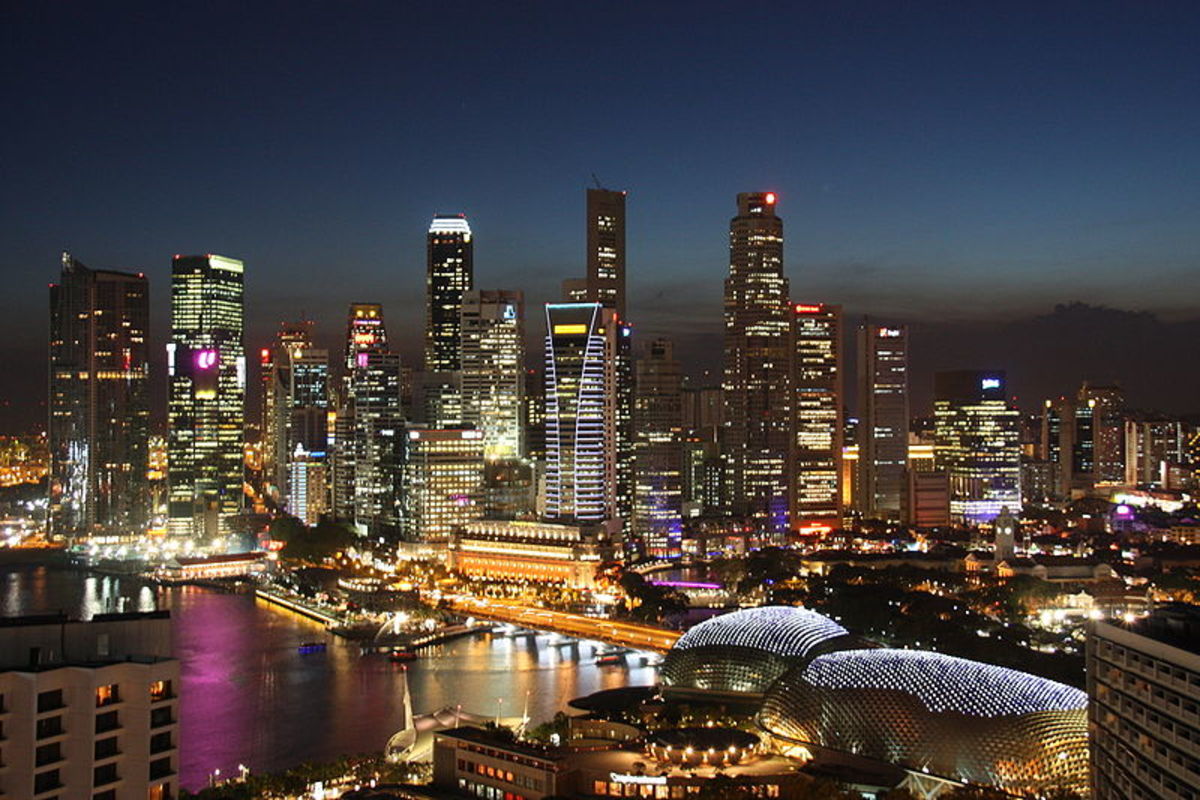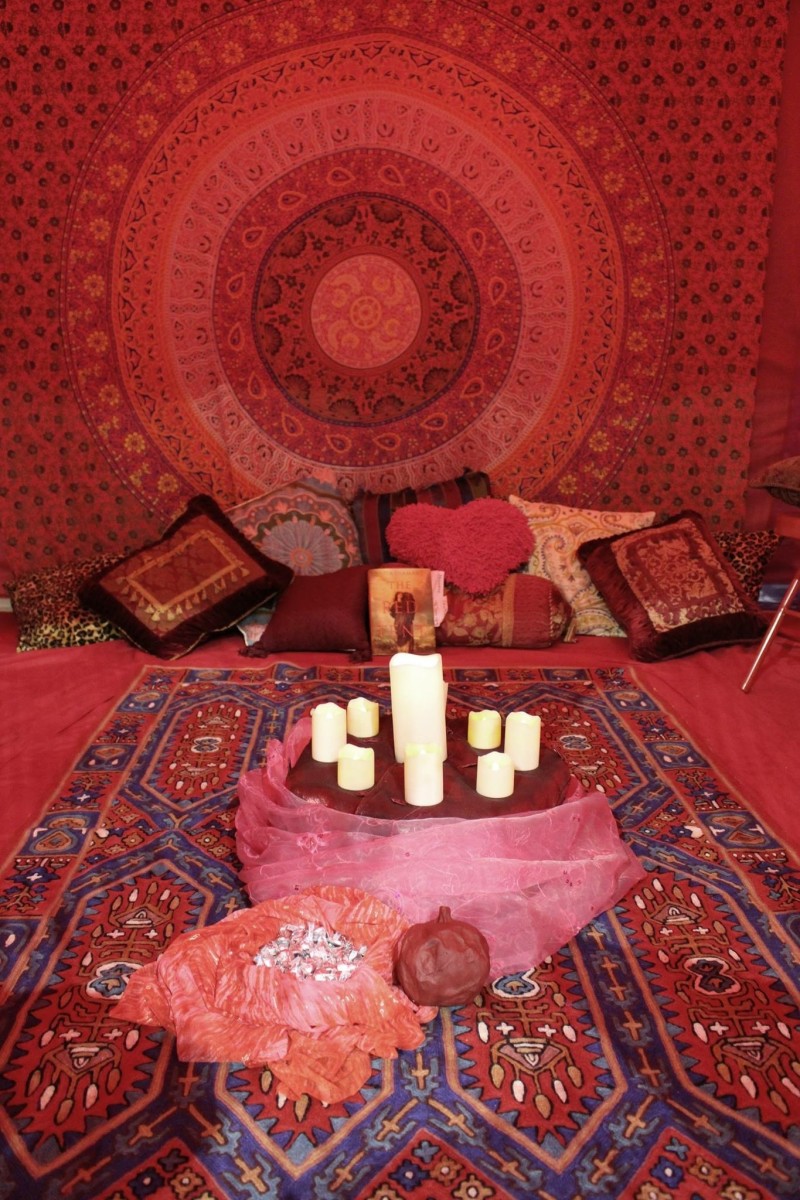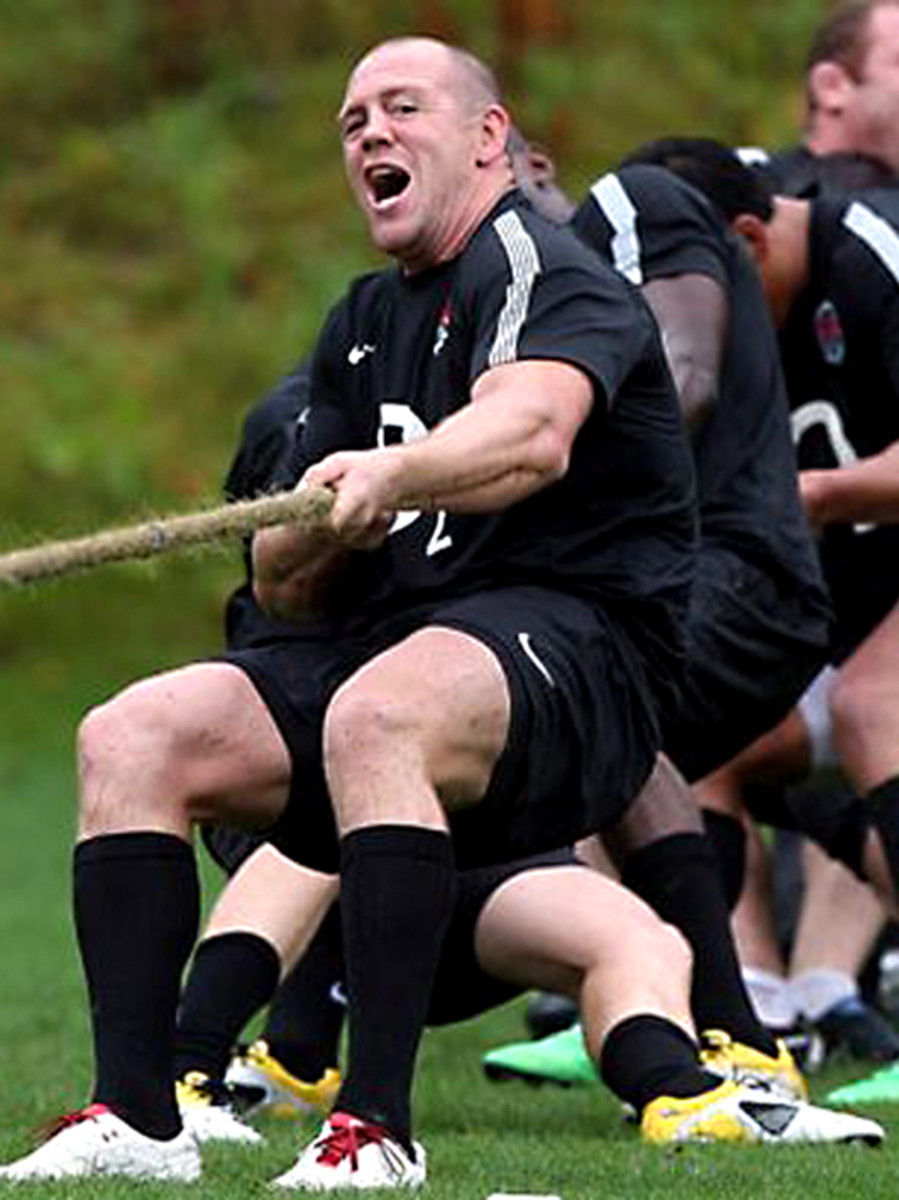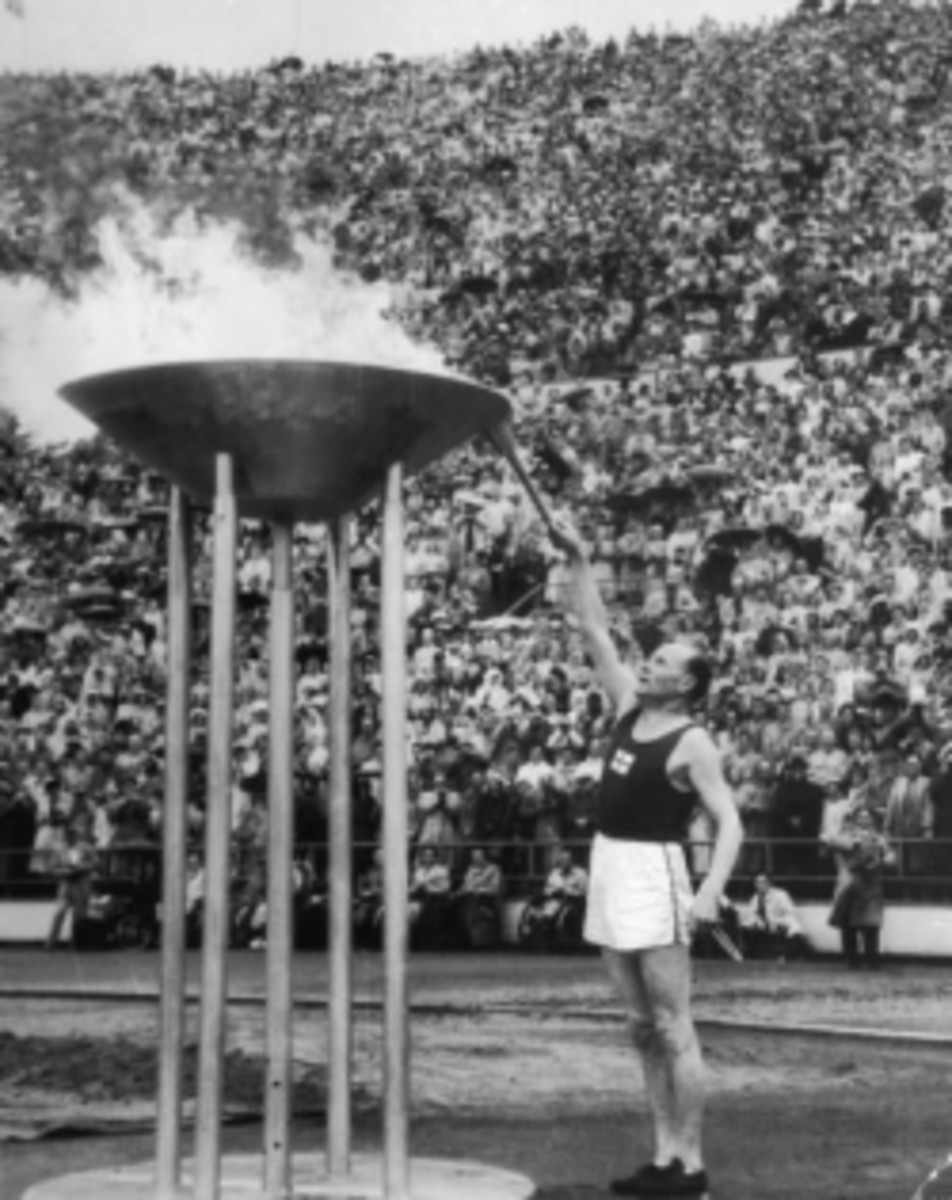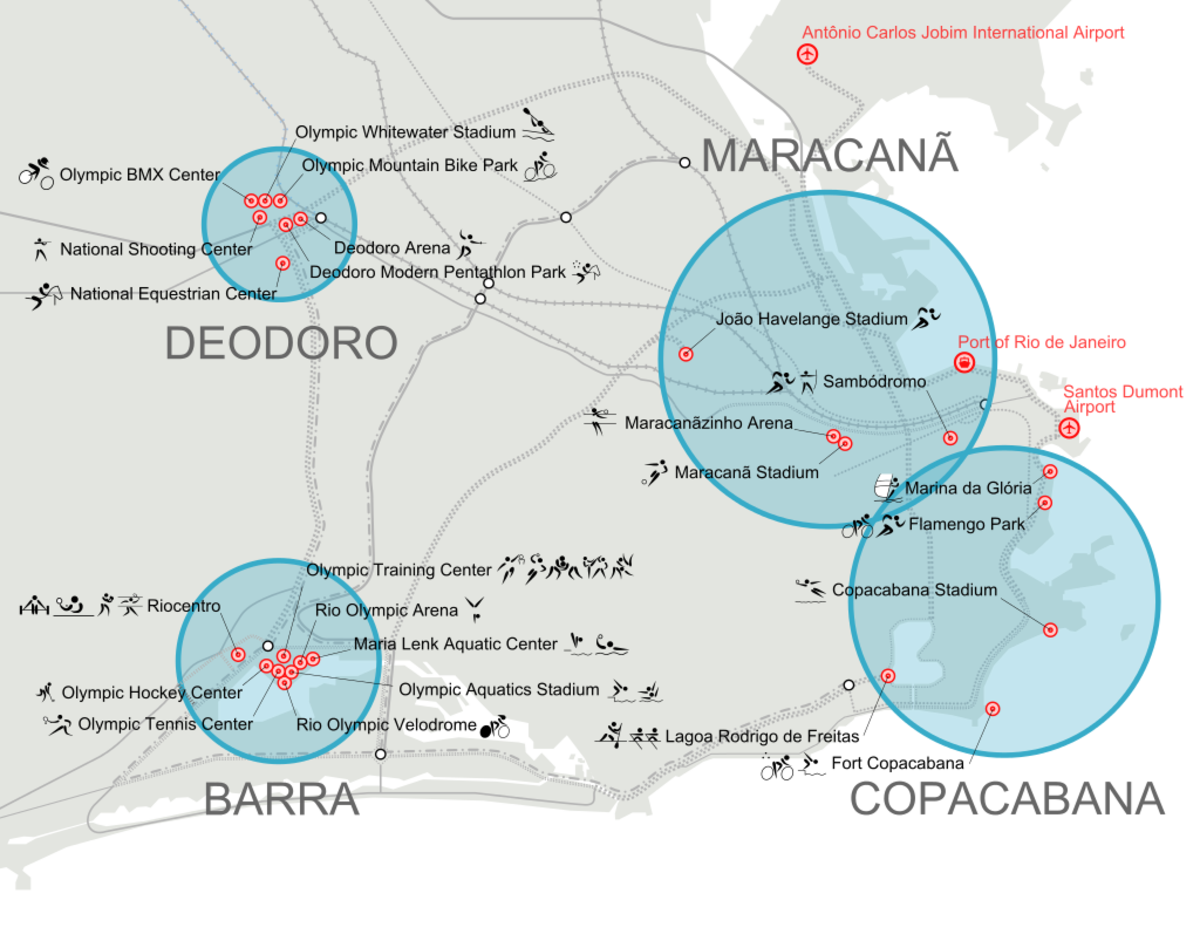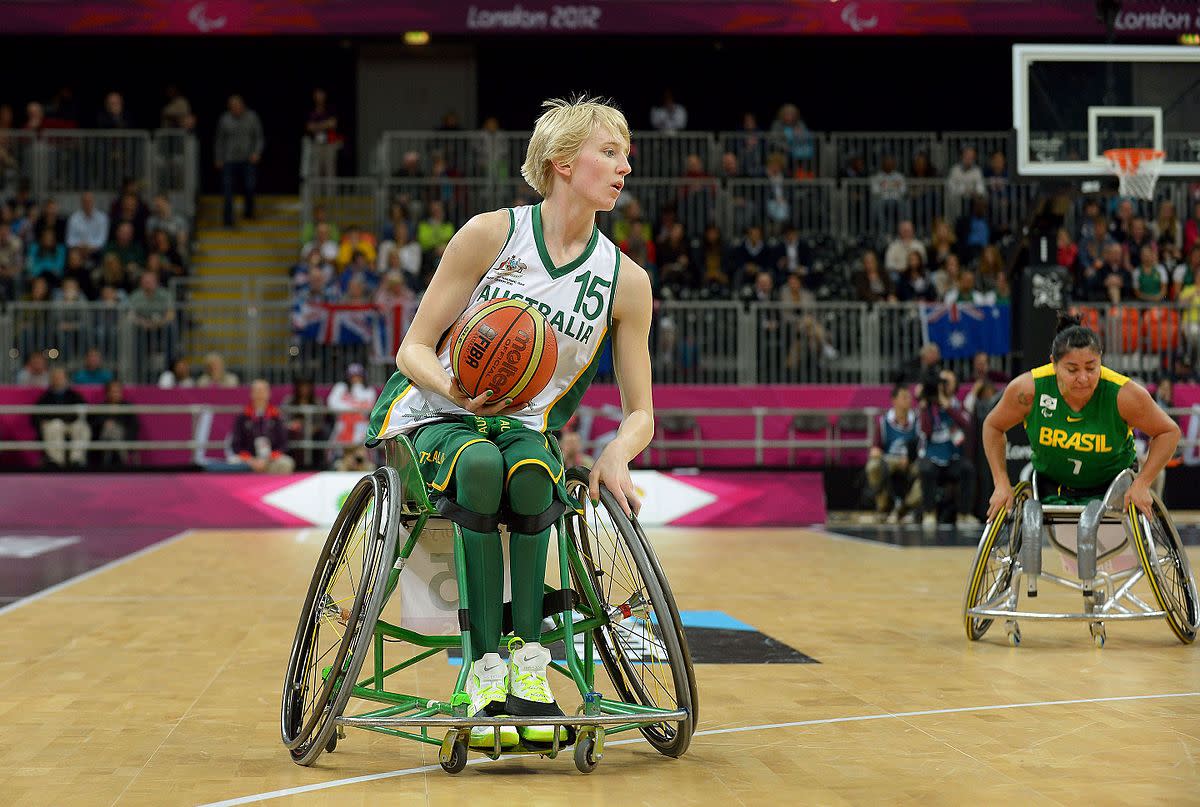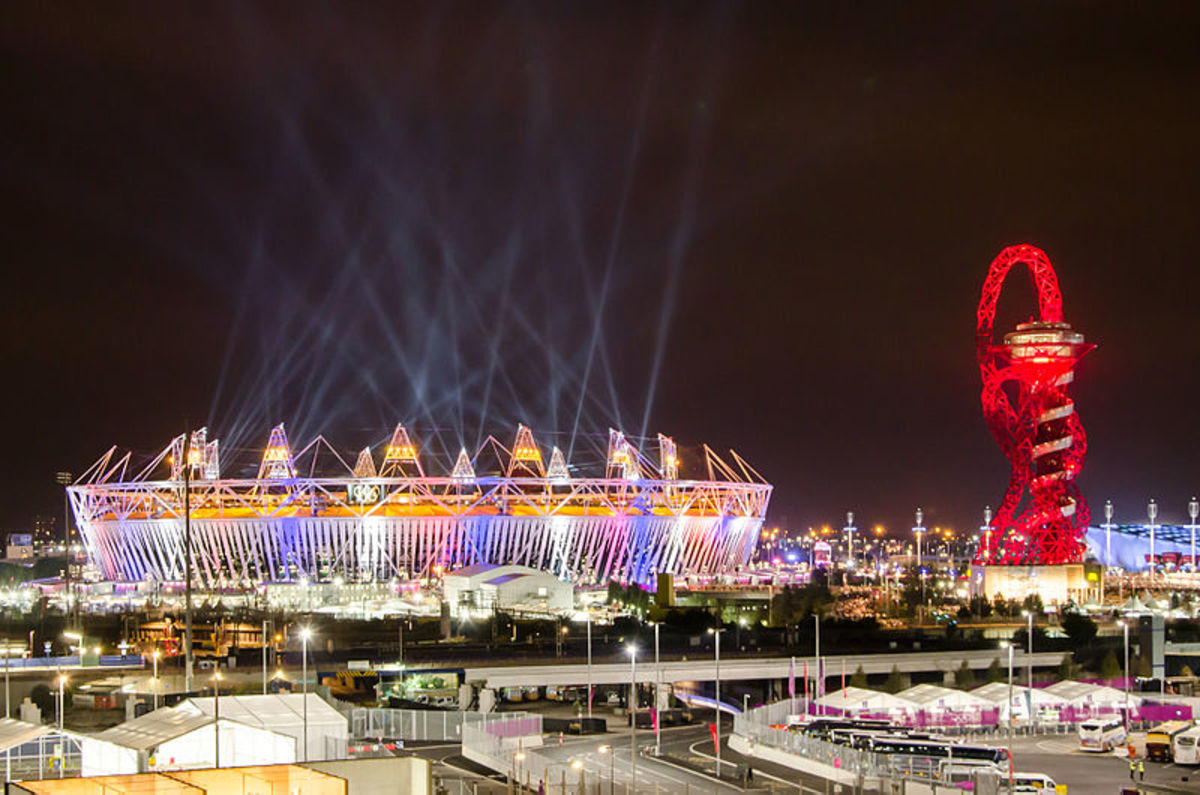A brief History of the Olympic Games, Ancient and Modern

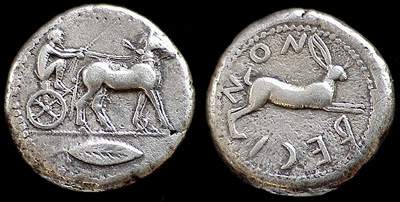
Ancient Games
According to Ancient Greek legends, the first Olympic games were founded by a god-among-men, the almighty Hercules himself, son of Zeus and founder of the warrior state of Sparta. Of course the first the first recorded Olympic games were not until 776 BC, though historians seem to mostly agree that they had been going on for years before this. At these very first of Olympic games there was one event: a 192 meter (or 210 yard) race, run in the nude by contestants from hundreds of Greek cities. This race event was won by a cook from the city-state of Elis named Coroebus. Therefore Coroebus is the very first Olympic gold medal winner in recorded history!
Over the next 1200 years the games continued to develop, with more events being added; boxing, wrestling, discus, javelin throwing, running jumping were all events which tested the body of the athlete (and were still curiously done in the nude); and chariot races and horse races (with a jockey) were events which tested the horsemanship of the athlete but also the breeding of the horses, in the chariot races a chariot and two horses were “sponsored” by wealthy citizens, who received the medal if their chariot won, the driver received only whatever pay the owner offered him. Another event called Pankration was remarkably similar to modern MMA; Pankration was a brutal combination of boxing and wrestling.
These games were held in the spirit of peace; every four years, the squabbling city-states put aside whatever battles they were fighting, up to and including declaring a temporary armistice so that the competing states could participate in the games. Though the games were a competition, in a sort of ironic way, they were also one of the only signs that Greeks recognized each other as being culturally the same. Ancient Greece was relatively culturally homogeneous, but politically divided into literally hundreds of city-states who were constantly at odds, and at war, with each other. The games were a clear indication that the Greeks recognized their culture as distinct from the cultures of those around them because they invited only Greeks to participate.
However, the original Olympic Games were doomed by the rise of Christianity, which did not look well on the Greek festival as it involved the worship of pagan gods as well as gratuitous nudity and sexuality; and as all things must come to pass, the games were banned by Theodosius I (the Great, or Saint Theodosius according the Orthodox Church) who was doing his best to enforce Christianity as the new state religion on the Roman Empire (which by this time controlled Greece). Theodosius was the last Roman emperor to rule over both the Western and Eastern halves of the Roman Empire, and this powerful, famous Emperor succeeded in ending the 1200 year old Olympic games. This was 394 AD.
Two things must be stressed here for proper understanding: the first is that the original games lasted 1200 years. For context, 1200 years ago was the year 812 AD, and the world could not have been more different than it is now; imagine a festival that involved say, all the nations of Europe coming together in the same way as the Olympics lasting from 812 until today. It would be impossible, too much has changed culturally since then. In fact, think even of how impossible it would be to maintain such cultural unity for so long.
The second thing to be stressed is that the cancelling of the games was really part of a larger expansion of Roman government into its populations everyday lives. For some hundred-and-fifty years the Roman state had been teetering, and enforcing a new religion on the populace was an attempt to enforce cultural unity, by giving the various Roman peoples more in common with each other. Of course, as stated, Theodosius was the last Emperor to rule both halves of the Roman empire, so I suppose I’ll let you be the judge of how well that worked.
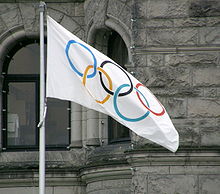
Modern Games
In any case though, the games were not ready to go down yet. Nearly 1500 years after being outlawed, when more time had passed since the Olympic games were gone than the entire first run of the games; a certain French Baron named Pierre de Coubertin had the idea to revive them. Pierre de Coubertin was convinced that the French lacked “vigor” after seeing his country overrun by the Germans in the Franco-Prussian war of 1871. He decided that the only way to hold back the menacing Teutons to the northeast would be for the French youth to have instilled in them courage and vigor; which would be achieved through athletic training. Coubertin’s original idea was not an international competition, but an athletic society which would encourage athleticism and manliness in French youths. So before he even had the Olympic idea he founded the “Comite’ pour La Propagation des Exercises Physiques” (Committee for the propagation of physical exercise.) It was only in 1889 that Coubertin had the idea to revive the ancient competition in a new form.
A certain Dr. William Penny Brookes was a big influence on Coubertin. Dr. Brookes believed that physical fitness was one way to help guard against illness and makes oneself stronger; his thoughts being suspiciously similar to those of the ancient Greek doctor Hippocrates who said “If we could give every individual the right amount of nourishment and exercise, not too little and not too much, we would have found the safest way to health.”
In order to facilitate a revival of the Ancient Games the Baron founded the International Olympic committee or IOC in 1890. The Olympic committee, under the influence of Coubertin, Dr. Brookes and a Grecian named Evangelis Zappas decided on an international competition that would take place every 4 years in rotating locations. Another Greek interested in reviving the games was Evangelis Zappas’ cousin Konstantinos Zappas, who left the Greek government a trust in order to fund future Olympic games.
Thus it was that the Olympic games were reborn! The first modern games were held at Athens in 1896. The games were opened by King Georgios I (of Greece) on April 6th. These first Olympic games featured 241 athletes from 14 nations (Australia, Austria, Hungary (though Austria and Hungary were united in the person of the Austrian Emperor/Hungarian King in personal union, they competed separately during the games), Bulgaria, Chile, Denmark, France, Germany, Great Britain, Greece, Italy, Sweden, Switzerland, and the United States) competing in 43 events in 9 categories: Athletics, Cycling, Fencing, Gymnastics, Shooting, Swimming, Tennis, Weightlifting, and Wrestling. In the athletics category, the very first marathon was run, and won by a Geek named Spridon Louis, who was the only Greek to win any event; but also the first winner of a Marathon in history!
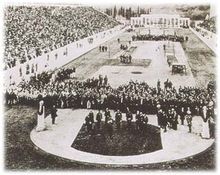
This first Olympic games was a big hit and attracted lots of attention. However, the subsequent games were held in the shadow of bigger events: the 1900 games were held as a sideshow of the Paris Exposition; and the 1904 games were lost in the melee at the World’s Fair in St. Louis. The 1900 games in Paris did not even have a stadium but had to compete in whatever venues were available. These second and third attempts at Olympic games were the low point for the Olympic movement; many doubted that the Olympics would continue.
Since the early games, Olympic games have been held on four continents, and soon five when Rio De Janeiro, Brazil hosts the 2016 summer games. The Olympics have usually been held in Huge International cities; examples of cities that have hosted Multiple Olympics prove this: London has hosted three Summer Olympics, the 1904, 1948, and this years 2012 Olympics. The 1948 games were of particular significance as they were the first games played since 1936, when the games were held in Nazi Germany. The 1940 and 1944 games, scheduled to take place in the Empire of Japan and Italy were cancelled due to WWII. In addition to London’s three games, several cities have hosted 2 games: Athens (1896,2004), Los Angeles (1932,1984), and Paris(1900,1924) have all hosted 2 Summer Olympic games and Lake Placid, US(1932,1980); St. Moritz, Switzerland(1928,1948); and Innsbruck, Austria(1964,1976) have all hosted two winter games.
Since it’s re-founding 116 years ago, the modern Olympic games have become immensely larger in scale, and much national pride tends to be invested in certain events. For example, at the 1896 Olympic games, 241 athletes from 14 nations (most of them “Great Powers” hoping to enhance their already inflated egos) competed at 43 events, at the 2008 summer Olympics in Beijing, China 10,000 athletes from over 200 nations competed for medals in 151 different events.
At the 2008 Beijing Olympic games, the Chinese government constructed 31 venues arrayed in a skeletal structure that resembled a bird’s nest. The total cost of the 2008 games has been estimated at between 15 Billion USD (by the Chinese) and 40 Billion USD (by independent sources.) The Chinese government reports profits of over 16 Billion USD for the games.

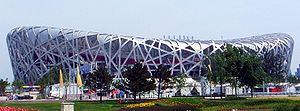
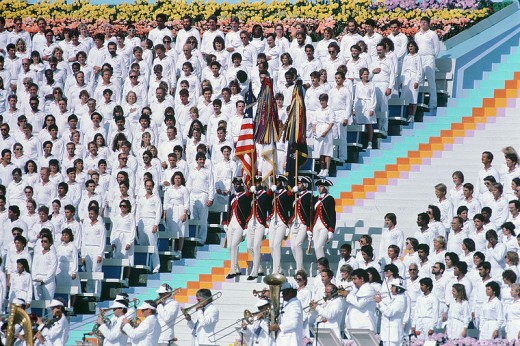
Controversy
In the early days, up until the 1970’s, the IOC resisted corporate sponsors of the Olympics, so as not to corrupt the games with commercialism. However, this had mostly to do with Avery Brundage, the chairman of the IOC, who resisted corporate backing. Once he retired the games “sold-out” and their budget went from $2 million USD in the year Brundage retired to over $45 million eight years later. It was in this time that the IOC shifted towards a policy of expansion through corporate patronage and the selling of rights to use symbols associated with the Olympic games. This was aimed at a policy of making the committee; and therefore the games, financially independent; or in other words, it was to make it possible for people to make money off the games; which has the downside of commercializing the games, but the upside of ensuring their future.
In order to facilitate this new brand, The Olympic Program (TOP) was created. Membership in TOP costs upwards of $50 million dollars for a four year term, but it gives members the right to use Olympic symbols and brands in their category. Membership is very exclusive and selective however, any person or business with $50 million can’t just “join,” they must be approved by the IOC on a case-by-case basis.
There has been some controversy about the IOC accepting corporate sponsors; the 1996 Atlanta and 2000 Sydney Games were particularly criticized for over-saturating the market with merchandise; of course, over-saturation really only hurts the companies who cannot sell all their wares, so it’s hard to see the point of this criticism really. A somewhat more legitimate criticism is that the IOC incurs no costs in building or maintaining the infrastructure necessary for the games to take place, this is incurred by National and local governments, but the IOC does make considerable amounts of money from the selling/licensing of it’s brand. Of course this fails to take into account that the governments in question usually just about break even; it also fails to account for the fact that hosting the Olympics is basically a prestige project; cities and nations do it to prove how “cool” they are. Ironically, playing host to the Olympic games is done for much the same reason that the Ancient Greek city-states used to build monuments and statues. Is it a money sink at worst or a wash at best? Maybe, but we still admire the Parthenon today and I have a hard time imagining that 3000 years from now people won’t look at the “bird’s nest” stadium in Beijing and be struck with the same admiration for their ancestors as we are when we see those ancient structures.
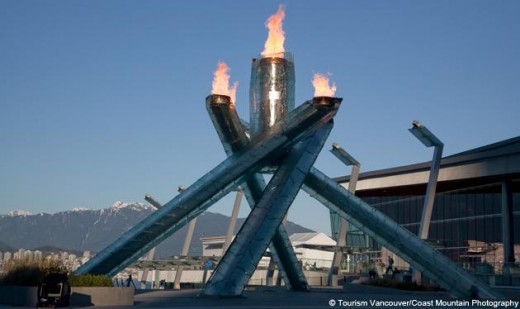
Legacy
All in all, the Olympic games are a source of pride. We send our strongest, fastest, most flexible, and most precise to represent our nation before the world. The Games are a way for nations to compete in a constructive way, instead of playing at war or economic mercantilism, they come together to play games and try the strength of their youth against one-another. Moreover though, the games are a symbol of peace and unity; the fact that 10,000 athletes can be gathered from 200 nations to compete in over 100 games is a testament to the fact that no matter how different we think we are from one-another; we all play and work hard, and we are all human. It is the common human experience that is stressed by the Internationally held, venue rotating Olympic Games.


